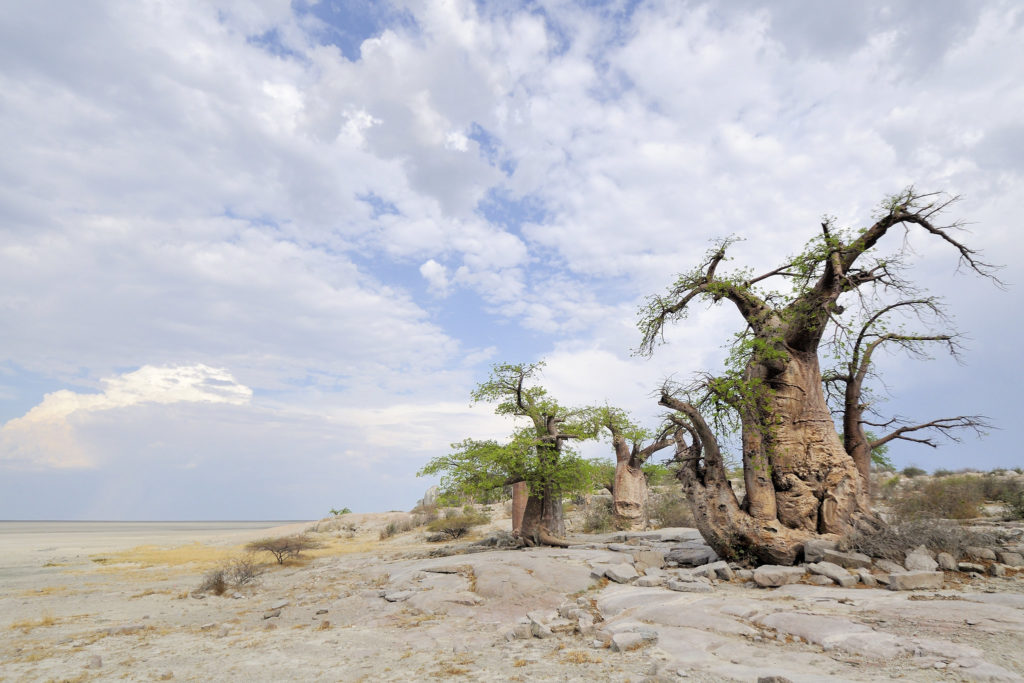
An island made of granite, blessed with incredible landscapes, endless skies, and a precious sense of isolation. Also, it’s considered a sacred place by the people who live there. If you want to enjoy these beauties that the mother nature created, then you should definitely visit the island of Kubu that lies in the Sowa salt pan, in the stunning Makgadikgadi Pans National Park in Botswana.
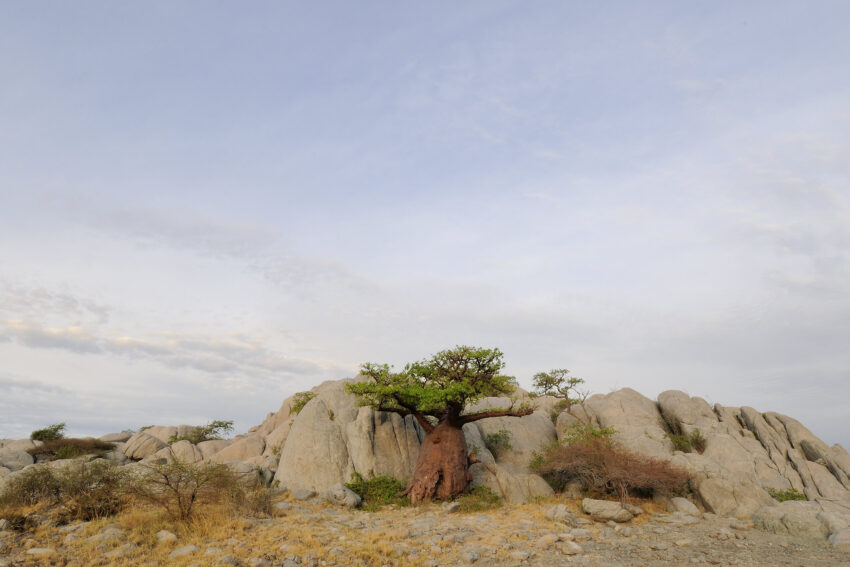
Once you start this adventure, you will feel like the moment in which you see Kubu on the horizon, is a welcoming relief. The first thing that you will notice is a granite outcrop covered with some ancient baobab trees, which are older than Christianity, as some of them have been growing for over two thousand years, but at least they bring some shade to the region.
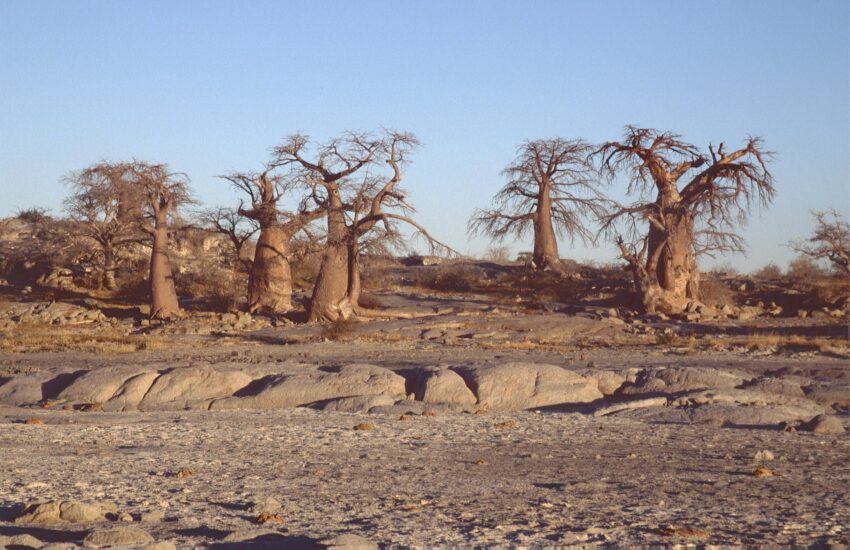
Sunrises and sunsets are the best moments of this island because at this time you will see how the color of the granite turns into pink, and the baobabs grow red as if they were about to burst into flames. Also, you will be speechless over the fact that the horizon is so flat that you can see how the sun sinks and rises from it, just like it does with water.
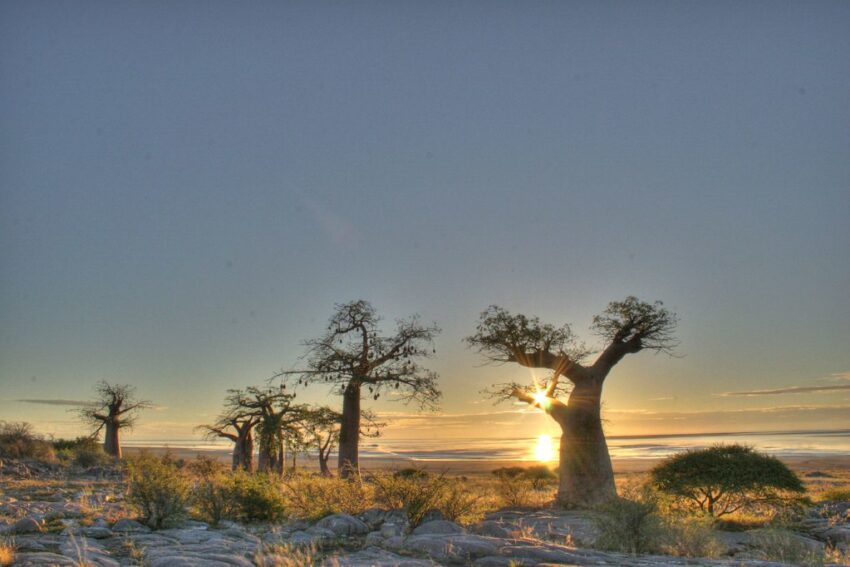
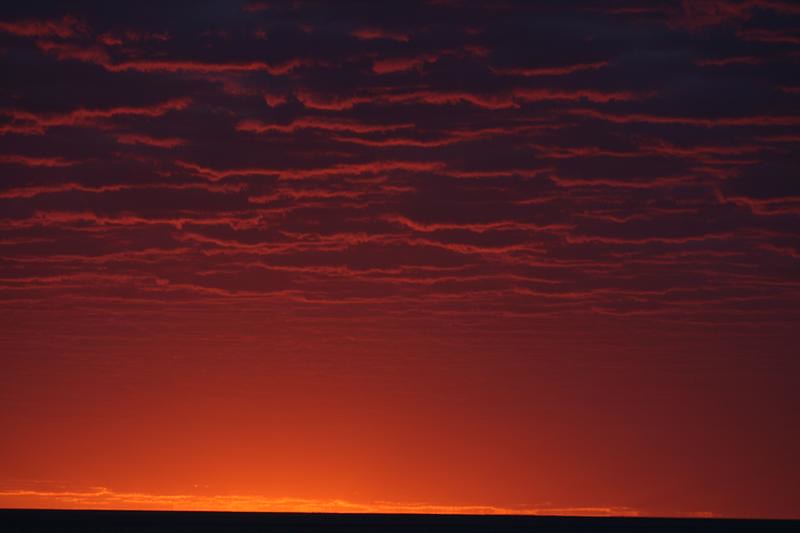
The island is also beautiful by night, when it’s being covered by the pale moonlight, as the baobabs cast ghostly, long, spare shadows; but you have to be careful while walking around during the night because it’s possible that animals like hippo and antelope wander over the pan, therefore it’s better to not disturb them.
In some places of Kubu, the surface is stained with guano, which is a reminder that there was a bird population who used to live there before the lake had dried up. Therefore, when you stand at the peak of the island, looking at its characteristic emptiness, it will be quite difficult to imagine the island being surrounded by water. The horizon is so vast and so silent that the only thing that you will be able to hear is the sound of the wind mixed with the sound of your breathing.
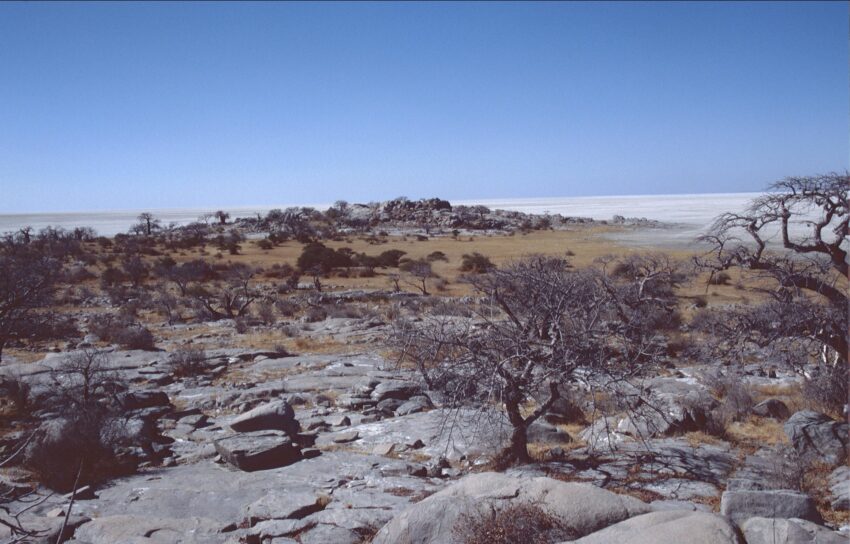
It’s important for you to know that this place has a rainy season that goes from November to February, and during those months it’s impossible to get to Kubu. In this season, the ground becomes treacherous and even a four-wheel drive will get stuck in it in a matter of minutes. However, when the rainy season is over and the island becomes reachable, you will have the opportunity to see some flamingos.
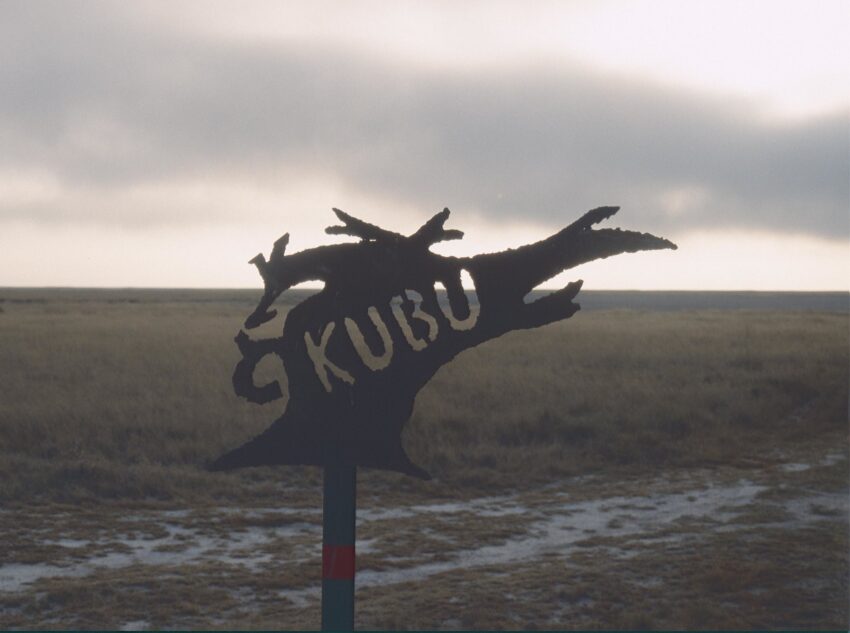
If there’s something that makes Kubu special is the fact that over the centuries this place has been sacred to many people. Therefore, some cutting tools and pottery shards from the Stone Age have been found there. Also, there is a stone enclosure that was used as a circumcision area and it’s believed to date from the 14th or 15th century. As time passed by, this place became sacred to the San people, and they left beds made of ostrich shell as offerings.
Over the centuries the San people were persecuted and many were killed, but the ones who survived keep their traditions, and sometimes they travel to Kubu in order to leave some of their offerings.
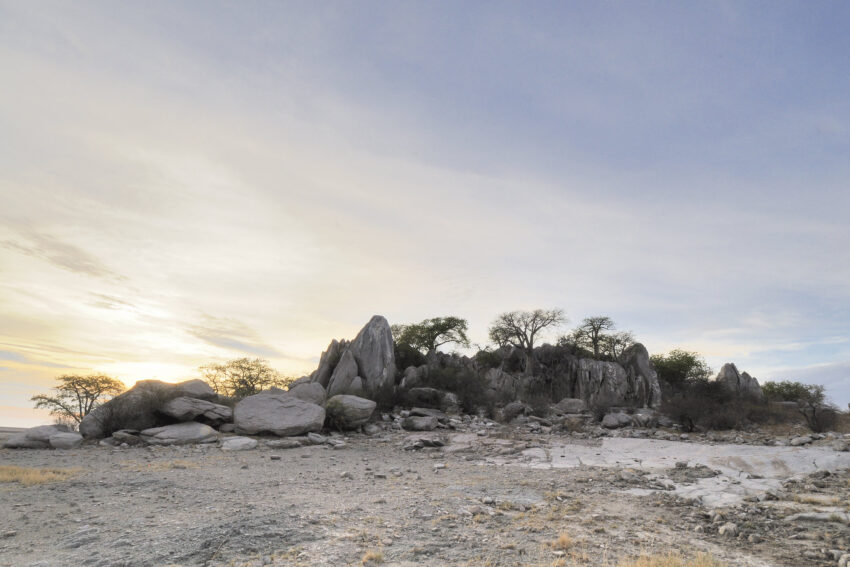
The island itself is a really spiritual place, and the silence of Kubu accentuates that feeling. Also, the bond between the place and the history is palpable, so it’s easy to imagine spirits walking around and hiding behind the baobabs that have stood there through generations.
Just for you to know
“Uncharted Africa” runs quad bike safaris to Kubu island from it’s well-known Jack’s camp. Camping facilities for Kubu are very basic but still, the company will provide you with everything that’s necessary for this adventure. Also, don’t forget to stay a couple of nights in the camp, you will enjoy them.
If you loved this article or found it useful, don’t forget to share it with your adventurous and travel-loving friends! If you want more posts like this, like us on Facebook, follow us on Twitter and Instagram, and subscribe to our newsletter!

